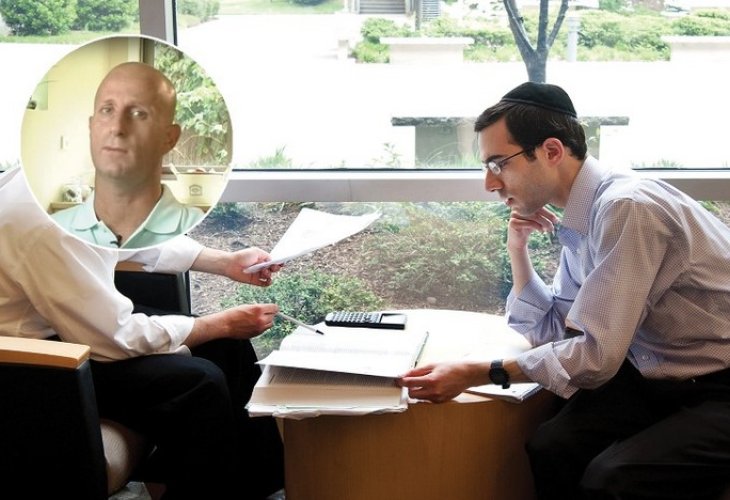Common Sense: What Did Mentor Alon Gal Advise Secular Parents When Their Son Became Religious?
Recently, mentor Alon Gal received a question from worried parents whose 16-year-old son began a process of returning to religion following his grandfather's death. The parents wanted him to finish his studies at school and make 'the right choices.' What was Gal's response?
 In the circle: Mentor Alon Gal (Photo: Shutterstock)
In the circle: Mentor Alon Gal (Photo: Shutterstock)Recently, mentor Alon Gal received a question from worried parents whose 16-year-old son began a process of returning to religion following his grandfather's death. "Next year," the parents shared, "he insists on going to a yeshiva, and we are very worried that this step might harm his future." According to the parents, they tried to talk to their son and dissuade him from his plan, at least until he completes his school exams. "But he is not willing to listen to us."
The parents sought Gal's advice to help their son make "better choices," as they defined it.
How did Gal respond? In a surprising answer by all accounts, from someone who does not define himself as a religious person, he remarked that the process of returning to religion at this age is usually accompanied by some trigger—in this case, a close and significant figure in the son's life. "There is no doubt that this is a complicated situation," he said. "As parents, we expect our children to follow the path we laid out for them and know what we want for them. However, regarding the child's choice, if you keep insisting, you will only lose. From my experience, fighting the return to religion always ends with the loss of the side that tried to prevent it; the more you fight him, the worse the situation becomes."
"If you follow this path - you will gain your child forever"
So what should be done instead? According to Gal's perspective, it is simple: "Our children need one thing from us - to be accepted unconditionally, as long as the choice is legitimate, ethical, and harms no one. The moment we conditionalize our love on the choices our children make, that's it. Parenting is over."
At this point, Gal provides an example of parents whose child, heaven forbid, falls into drugs. "If you had told me that your child decided to become a drug dealer and you want him to continue just until he finishes his studies first, I would scream. But this time, it's about a kid who decided to be a yeshiva student. Call it a choice from heaven or however you want—but it's his choice and his decision. Parenting is not a contract, and your son has not broken any contract."
In conclusion, Gal suggested to the worried parents a practical solution of sitting down to have a serious conversation with the child to decide how to combine yeshiva studies with completing high school exams. "Explain to him that you understand his desires but at the same time want him to look at the whole situation and decide how to merge the two worlds. It's possible that if he studies in a yeshiva, he'll manage to complete the exams externally, but if he insists on not doing so—don't fight him. What should you do? Be humble and tell yourselves that you have done your part. You brought him to the place where he is today, and from here on, you stand behind every decision he makes. These are his life, and I believe if you follow this path - you will gain your child forever."
What would you do?

